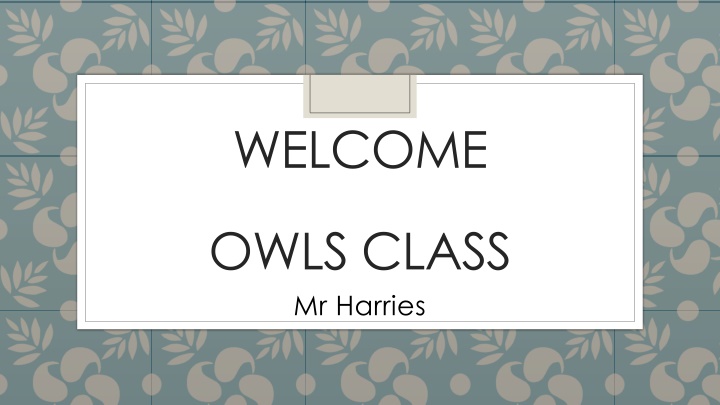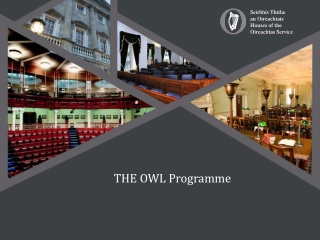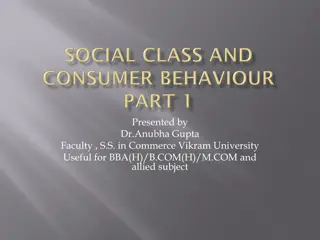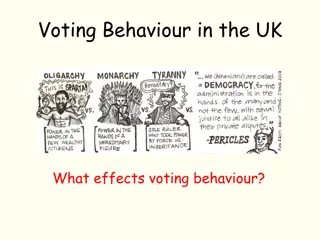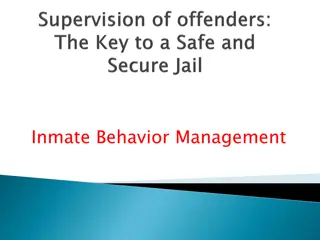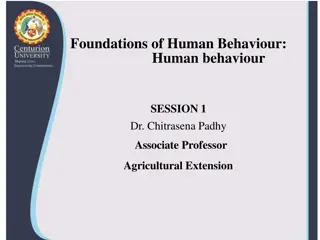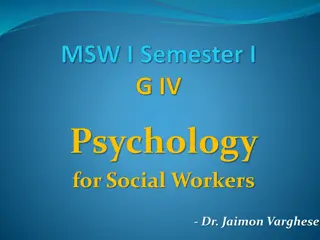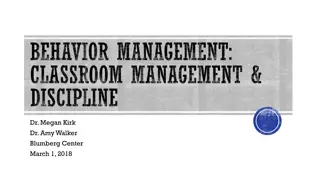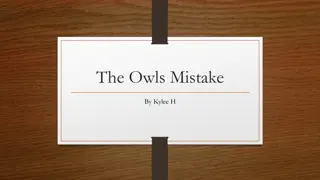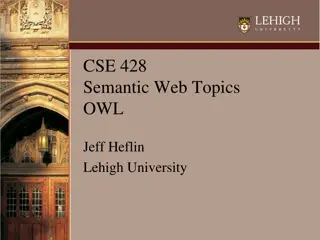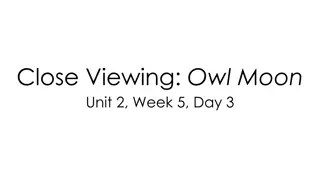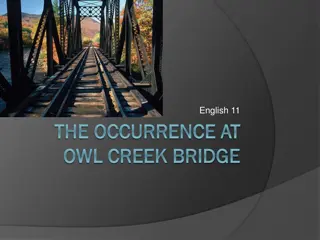Managing Student Behavior at Owl's Class with Mr. Harries
In Owl's Class with Mr. Harries, behavior management is crucial for creating a safe and productive learning environment. The vision is to foster a community where all members can thrive, disruptions are minimized, and success is encouraged through kindness and equal authority. Strategies for dealing with low-level behaviors, both one-off and repeated, are outlined to ensure effective classroom management and support student growth.
Download Presentation

Please find below an Image/Link to download the presentation.
The content on the website is provided AS IS for your information and personal use only. It may not be sold, licensed, or shared on other websites without obtaining consent from the author.If you encounter any issues during the download, it is possible that the publisher has removed the file from their server.
You are allowed to download the files provided on this website for personal or commercial use, subject to the condition that they are used lawfully. All files are the property of their respective owners.
The content on the website is provided AS IS for your information and personal use only. It may not be sold, licensed, or shared on other websites without obtaining consent from the author.
E N D
Presentation Transcript
WELCOME OWLS CLASS Mr Harries
If you have any questions throughout the presentation, please use the chat feature on Zoom
A little bit about me Fourth year in Year 4, 10 years experience overall Degree in Economics I live in Abingdon. Originally from Wales I love comic books and Chelsea.
Owls Mr Harries PPA time Monday afternoon covered by Mrs Laws (Forest School) Mr Pear will be teaching PE on a Friday afternoon Mrs Laws Teaching assistant In class every morning Monday Friday Leading Forest School Mrs Saquib Teaching assistant In class all morning Tuesday, Thursday and Friday Miss Croston Student Teacher 30 children in the class
Rebooting Behaviour: What is the vision? All members of the school community are able to flourish in a safe environment Lessons are free from disruption and no learning time is wasted Children are consistently well taught and experience success. This means they will be motivated to work hard and to show resilience to overcome barriers Kindness and gratitude are the norm in all interactions All adults have equal authority and consistently lead behaviour in and out of classrooms Reasonable adjustments are made to provision for children with specific needs Children and adults have a sense of pride in the school environment
One off low level behaviours For example: Not listening to the teacher, teaching assistant or other member of staff. Distracting other pupils Interrupting others The member of staff will choose from this toolkit: Use non-verbal cues to avoid disruption to flow Express private, firm disproval Allow take up time for the child to process instructions Keep the child back briefly at morning or lunch playtime to reset expectations
Repeated low level behaviours The member of staff will choose from this toolkit: Give a timeout in the classroom Give a closed choice ( You can either get on with your work now or finish it during playtime ) Reset expectations in front of the phase leader Persistent low level behaviours The member of staff will choose from this toolkit: Instruct the pupil to spend a period of timeout outside of the classroom Contact parents, supported by the phase leader A senior leader will choose from this toolkit: Place the child on report for one week, which will involve daily check ins with a member of the school s leadership team Set an internal exclusion if this is deemed appropriate
Serious incidents For example: spitting, swearing, insulting others, defiance, violence, bullying behaviour, theft. The member of staff will: Ensure that everyone is safe and send for one or more school leaders Senior leaders will: Intervene and talk to the pupil about what has happened Call the child s parents to discuss what happened Place the child on report for 2 weeks, which will involve daily check ins with a member of the school s leadership team Senior leaders might: Set an internal exclusion Issue a fixed term or permanent exclusion if appropriate
Reminders Forest School every Monday afternoon. PE kit ready for Friday afternoon sessions (hair tied up and earrings removed). Children will come home in their kits so they can be washed ready for the next week. Water bottle in every day Coat in every day Reading record in school everyday to be checked by an adult in the class on Tuesdays.
Homework Reading as often as possible at least 4/5 times a week (to be recorded in the reading records) Further ideas will be added to the school website during this half term Currently, you will find spelling lists, a maths knowledge organiser, information to support your child with reading at home and recommended books for children in Year 4 Practice Times Tables
Useful Websites BBC Bitesize Nrich Maths Zone Topmarks ReadTheory Newsround National Geographic Kids
Topics this year: Medieval Britain Sir Francis Drake Extreme Weather Blenheim The Suffragettes Population Superpowers
Weekly Timetable 8.45 9.00 9-10 10-10.50 11.20-12.30 13.15-14.45 BREA K 10.50 - 11.05 11.05- 11.20 LUNC H 12.30- 13.15 14.45- 15.00 Monday EMW Writing WCR Times Tables Maths Forest School PPA Class Novel Tuesday EMW Handwri ting Writing WCR Times Tables Maths MC SPaG Topic I Class Novel Wednes day Writing Art EMW Spellings WCR Times Tables Maths MC SPaG Class Novel Thursda y Writing EMW Maths WCR Mental Maths Maths MC SPaG French PSHE/ RE Class Novel Friday Writing Science PE EMW Puzzle Times Tables Maths
Year 4 times table test The Multiplication Tables Check is only being rolled-out to schools in England. Children will sit the new times tables test either in June 2019 (if their school has volunteered to the trial) or in June 2020 meaning it will be mandatory for all children starting Year 4 in September 2019. Schools have a three-week window in the month of June to have their Year 4 children sit the test, but will be free to choose which day within that three-week period they choose to sit it. All state schools in England, including maintained schools, special schools, academies and free schools will be required to enter their children for the Multiplication Tables Check .
Parent Contact Please contact the school office and expect a response from your child s class teacher within 72 hours If you would like to discuss anything in more detail, please contact the school office to arrange a virtual meeting (Zoom) or a phone call Reporting to parents (Autumn term and Spring term)
Thank you for listening Time for questions
